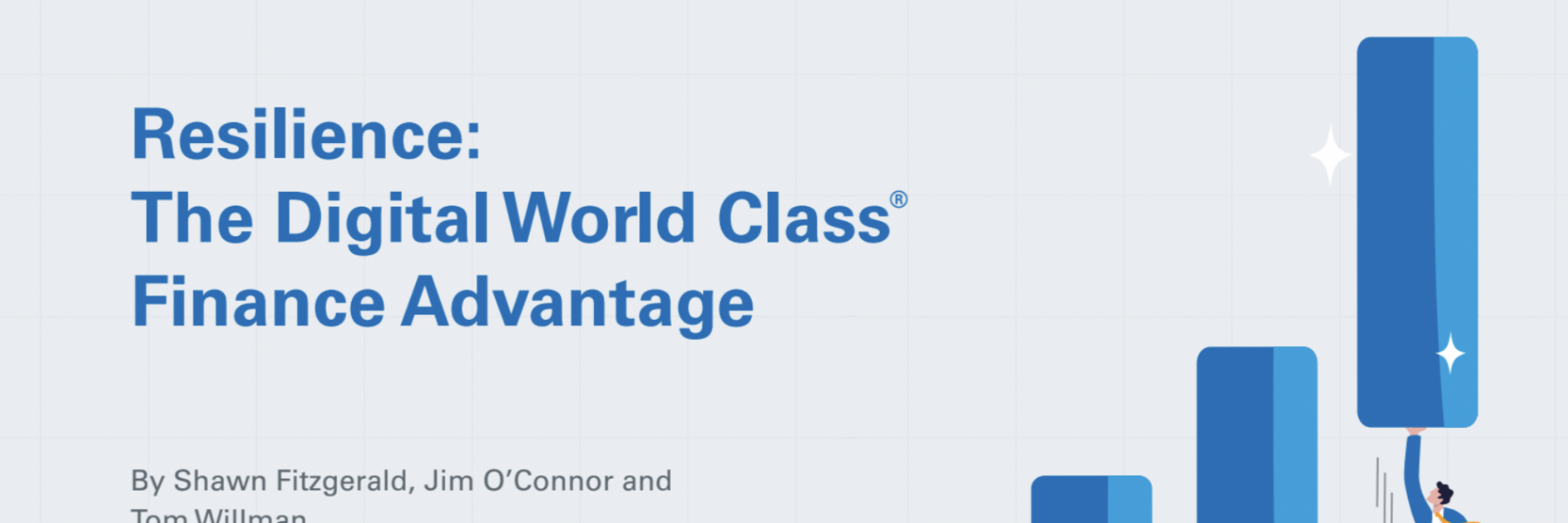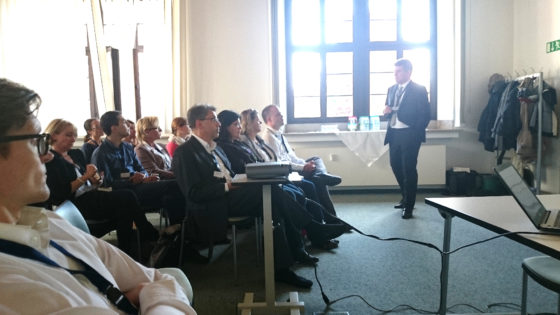von Georg Bach, MD für DACH bei The Hackett Group.
Auch die längst schon begonnene zweite Jahreshälfte 2023 wird weiterhin schwierig bleiben: Wirtschaftlicher Abschwung durch Rezession, weiterhin hohe Inflationsraten und geopolitische Verwerfungen bestimmen die wirtschaftlichen Rahmenbedingungen. Eine der Folgen: Zum ersten Mal in den letzten Jahrzehnten steigen die operating costs von Finanzorganisationen in internationalen Großunternehmen ̶̶ und zwar im Durchschnitt um 8% gegenüber dem Vorjahr.
Das zeigt die aktuelle Studie “Resilience: The Digital World Class Finance Advantage” der Hackett Group, in der mehr als 300 global aktive Großunternehmen, darunter viele europäische und DAX 40 Konzern untersucht wurden. Nur die Unternehmen, die konsequent den Status der Digital World Class (DWC) Performance realisieren, können ihre Betriebskosten im Bereich Finance im Vergleich zu den Durchschnitts-Unternehmen der Peer Group fast um die Hälfte reduzieren.
Dabei erreichen sie enorme Verbesserungen in der operativen Leistung, erzielen höhere Gewinnmargen bzw. bessere Renditen und erreichen durch eine gesteigerte customer experience eine höhere Kundenbindung im volatilen Marktumfeld ̶̶ kurz: sie sind weit resilienter gegen Krisen als ihre durchschnittlichen Mitbewerber. Und das zahlt sich aus: Digital World Class-Financeorganisationen realisieren ̶ – bei einem Jahresumsatz von ca.10 Mrd. Euro ̶ einen jährlichen Kostenvorteil von rund 50 Millionen Euro gegenüber dem Gros der durchschnittlichen Unternehmen.
Weitere Ergebnisse der Hackettstudie: Unternehmen, bei denen mindestens eine Servicefunktion auf DWC-Niveau arbeitet, haben einen Zeit- und Entwicklungsvorsprung von rund 5 Jahren gegenüber dem Durchschnitt mit einer um 80 Prozent höheren net margin, 24 Prozent mehr Gewinn vor Steuern, Abschreibung und Zinstilgung sowie eine um 89 Prozent bessere Eigenkapitalrendite.
Wie unsere Erfahrungen im Beratergeschäft zeigen, arbeiten die meisten Unternehmen im deutschsprachigen Raum bei Finance und Gemein- und Verwaltungskosten nicht auf DWC-Level, sondern im durchschnittlichen Peerbereich. Die Folgen: Bestehende Nachteile bei Kosten- und Wertbeitrag verstärken sich mit der Konsequenz, dass notwendige Investitionen in Innovationsthemen wie smart analytics oder strategisch relevante Skills entweder garnicht, oder nicht im erforderlichen Umfang, getätigt werden
Zudem zeigt die Studie, dass DWC-Performer frühzeitig in digitale Transformation investiert haben. Dadurch profitieren sie enorm von smart automation, advcanced analytics oder collaboration tools für funktionsübergreifende und interdisziplinäre Zusammenarbeit im Unternehmen.
Fazit: Strategisch genutzte Digital Technology ist ein Schlüsselelement dafür, wie DWC-Unternehmen ihre Erfolge realisieren. Allerdings nur dann, wenn die organisatorischen Rahmenbedingungen gegeben sind: Integrierte Daten- und Prozessmodelle im Rahmen eines kundengerichteten Operating models, eine moderne Cloud-Architektur und konsequentes Talent Management.
Die Umsetzung dieser Voraussetzungen erfordert einen langjährigen Fokus, ehrgeizige Ambitionen, TOP Leadership-Commitment, zielgerichtete Incentive Strukturen und eine funktionsübergreifende Performance-Kultur. Das alles ist nicht einfach, aber machbar ̶̶ auch im deutschsprachigem Raum.
Hier geht es zur Studie:
DWC Finance Research 2023 FINAL
by Georg Bach, MD for DACH at The Hackett Group.
The second half of 2023, which has long since begun, will also remain difficult: the economic downturn due to recession, persistently high inflation rates and geopolitical upheavals determine the general economic conditions. One of the consequences: For the first time in the last few decades, the operating costs of financial organizations in large international companies are increasing by an average of 8% compared to the previous year.
This is shown by the current study “Resilience: The Digital World Class Finance Advantage” by the Hackett Group, in which more than 300 globally active large companies, including many European and DAX 40 groups, were examined. Only those companies that consistently achieve the status of Digital World Class (DWC) performance can reduce their operating costs in the finance area by almost half compared to the average companies in the peer group.
In doing so, they achieve enormous improvements in operational performance, achieve higher profit margins or better returns and achieve greater customer loyalty in a volatile market environment through an increased customer experience – in short: they are far more resilient to crises than their average competitors. And that pays off: digital world-class finance organizations realize – with an annual turnover of around 10 billion euros – an annual cost advantage of around 50 million euros compared to the majority of average companies.
Additional findings from the Hackett study: Companies with at least one service function operating at DWC level have a time and development lead of around 5 years compared to the average with an 80 percent higher net margin, 24 percent more profit before taxes, depreciation and interest amortization and an 89 percent better return on equity.
As our experience in the consulting business shows, most companies in German-speaking countries do not work at DWC level when it comes to finance and general and administrative costs, but in the average peer range. The consequences: Existing disadvantages in terms of cost and value increase with the consequence that necessary investments in innovation topics such as smart analytics or strategically relevant skills are either not made at all or not to the required extent.
The study also shows that DWC performers invested in digital transformation at an early stage. As a result, they benefit enormously from smart automation, advanced analytics or collaboration tools for cross-functional and interdisciplinary cooperation in the company.
Conclusion: Strategically used digital technology is a key element in how DWC companies realize their successes. However, only if the organizational framework is in place: Integrated data and process models as part of a customer-oriented operating model, a modern cloud architecture and consistent talent management.
The implementation of these requirements requires a long-term focus, big ambitions, TOP leadership commitment, targeted incentive structures and a cross-functional performance culture. All this is not easy, but doable ̶̶ also in German-speaking countries.
To the study (in English):
DWC Finance Research 2023 FINAL



